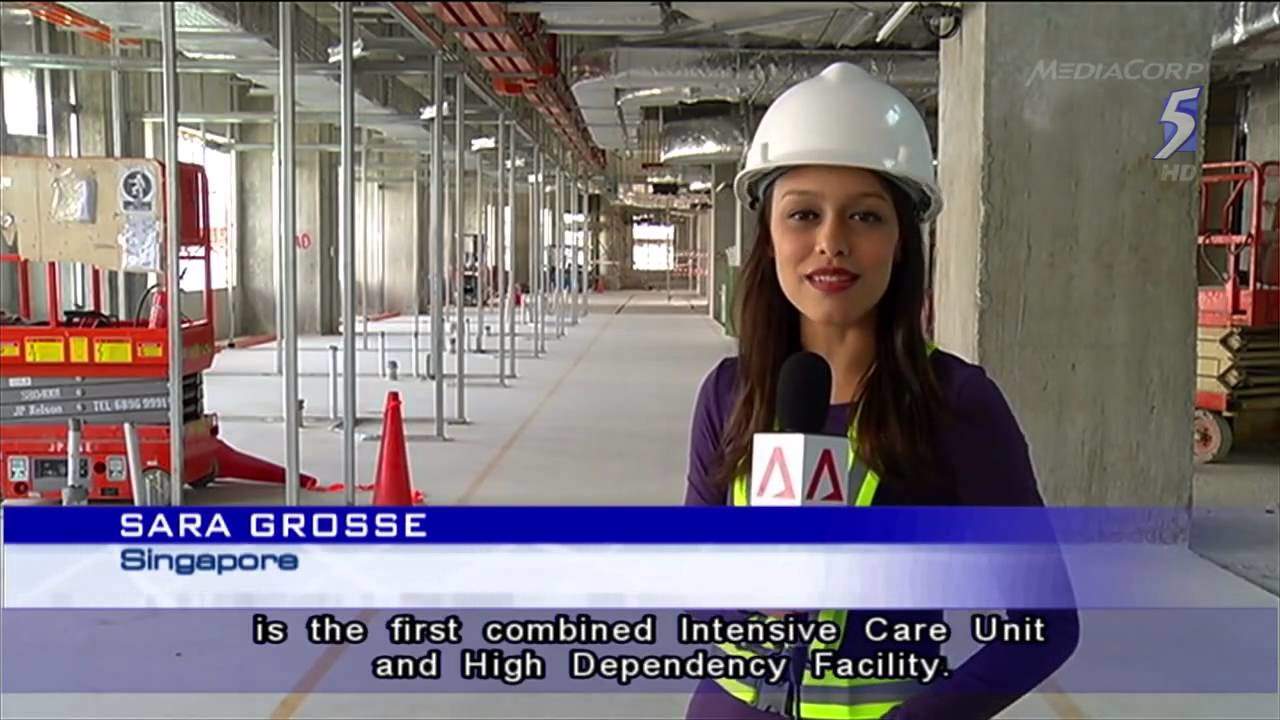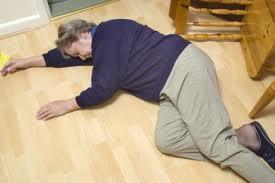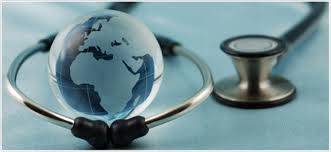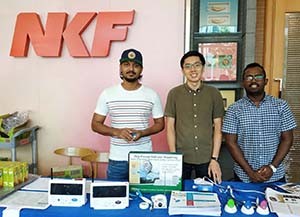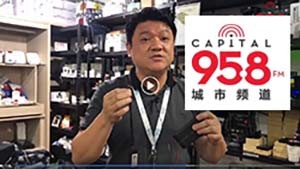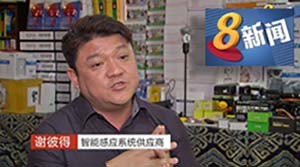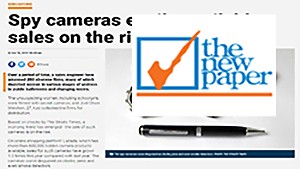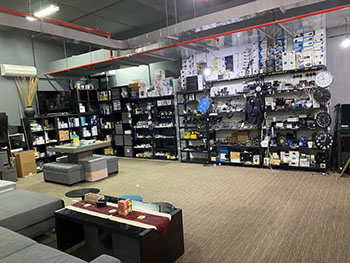List of General Hospitals
Changi General Hospital (CGH)
Changi General Hospital (CGH) is a Joint Commission International (JCI) accredited general hospital offering acute and specialised care. Our medical clinics and specialist centres offer a wide range of medical and surgical services which include Otolaryngology, Dermatology, Ophthalmology and Endocrinology.
2 Simei Street 3, Singapore 529889
Tel: 67888833 Fax: 67880933
Gleneagles Hospital
Gleneagles Hospital is a 272-bed private hospital providing a wide range of medical and surgical services for the total management of patients. Gleneagles’ key specialties include Cardiology, Gastroenterology, Liver Transplant, Obstetrics & Gynaecology, Oncology and Orthopedics. Gleneagles’ key strengths lie in its patient focus, user-friendly services, quality care, specialists’ expertise and proven technology. Gleneagles was accredited with the Joint Commission International (JCI), the world leader in improving the quality of healthcare, in 2006 and re-accredited in 2009.
6A Napier Road Singapore 258500
Tel: (65) 6473 7222 Fax: (65) 6470 5616
Jurong Health Hospital
JurongHealth is the new public healthcare cluster formed to facilitate the integration of services and care processes within the hospital and across the community, so as to better serve the healthcare needs in the West of Singapore. JurongHealth aims to provide Care in areas like Rehabilitation, Convalescent , Geriatric evaluation and management, Psychogeriatrics and Palliative.
378 Alexandra Road Singapore 159964
Tel: (65) 6472 2000 Fax: (65) 6379 4330
Mount Alvernia Hospital
Mount Alvernia is a 303-bed general acute care hospital with tertiary medical capabilities and two multi-disciplinary medical specialist centres. The hospital is supported by over 1,000 accredited doctors, with about 100 specialists based on-campus.
820 Thomson Road Singapore 574623
Tel: (65) 6347 6688
National University Hospital (NUH)
National University Hospital is a tertiary hospital and major referral centre for a comprehensive range of medical, surgical and dental specialties including Cardiology, Gastroenterology and Hepatology, Obstetrics and Gynaecology, Oncology, Ophthalmology, Paediatrics, Orthopaedic Surgery and Hand and Reconstructive Microsurgery. The Hospital also provides organ transplant programmes for adults (in kidney, liver and pancreas) and is the only public hospital in Singapore to offer a paediatric kidney and liver transplant programme.
5 Lower Kent Ridge Road Singapore 119074
Tel: (65) 6779 5555 (24-Hr) Fax: (65) 6779 5678
Ng Teng Fong General Hospital
Ng Teng Fong General Hospital, a 700-bed acute hospital, will be twinned with a 400-bed community hospital to provide holistic integrated care. Slated to open from 2014, these two hospitals will be an integral part of the Jurong Lakeside District Masterplan, with easy access to public transport services (Jurong East MRT Station, Jurong East Bus Interchange) and retail/entertainment hubs.
378 Alexandra Road Singapore 159964
Tel: +65 6472 2000 Fax: +65 6379 4330
Parkway East Hospital (former East Shore Hospital)
Formerly known as East Shore Hospital, Parkway East Hospital is a 106-bed private general acute care hospital, with an outreach specialist centre in eastern Singapore providing a wide range of medical and surgical facilities. Their extensive team of experienced medical specialists ensure their patients get the quality of care expected.
321 Joo Chiat Place Singapore 427990
Tel: 65 6344 7588 Fax: 65 6345 4966
Raffles Hospital
Raffles Hospital offers a full complement of specialist services combined with advanced medical technology. Its 21 specialist centres meet a wide variety of medical needs such as obstetrics and gynaecology, cardiology, oncology and orthopaedics.
585 North Bridge Road Singapore 188770
Tel: (65) 6311 1111 Fax: (65) 6311 2136
Singapore General Hospital (SGH)
Singapore General Hospital (SGH) is the first and largest hospital in Singapore. It provides affordable specialist care for patients, training for doctors and other healthcare professionals, and conducts research to bring better care to its patients. SGH is accredited by the Joint Commission International for meeting its standards of safety and quality in healthcare.
Outram Road Singapore 169608
Tel: 6222 3322 Fax: 6224 9221
Tan Tock Seng Hospital (TTSH)
TTSH is one of Singapore’s largest multi-disciplinary hospitals with 170 years of pioneering medical care and development. The hospital has 40 clinical and allied health departments, 16 specialist centres and is powered by more than 7,000 healthcare staff. TTSH sees over 2,000 patients at its specialist clinics and some 460 patients at its emergency department every day.
11 Jalan Tan Tock Seng Singapore 308433
Tel: (65) 6256 6011 Fax: (65) 6252 7282
List of Community Hospitals
Ang Mo Kio-Thye Hua Kwan Hospital Ltd
Thye Hua Kwan Hospital (AMK – THKH) is a leading provider of rehabilitative care in Singapore. We aim to nurture our patients to become self-reliant and assist them in their integration back into society.THKH is equipped with knowledge and expertise in a variety of health disciplines to give our patients the best possible care towards recovery.
17 Ang Mo Kio Avenue 9, Singapore 569766
Tel: 6453 8033
Bright Vision Hospital
Bright Vision Hospital (BVH) is a 318 bed community hospital offering intermediate and long-term care services to about 1200 new patients a year. BVH provides inpatient services for sub-acute, rehabilitation, palliative and chronic sick patients. The hospital also serves as training and education centre for professionals and the public in community care for the elderly and infirmed.
5 Lorong Napiri Singapore 547530
Tel: (65) 62485755 Fax: (65) 68813872
Kwong Wai Shiu Hospital And Nursing Home
Kwong Wai Shiu Hospital boasts 350 beds spread over a 6-acre compound. Staffed by about 300 trained and professional employees, our In-patient Department (IPD), Rehabilitation Centre and Traditional Chinese Medicine (TCM) Centre serves thousands of patients every month.
705, Serangoon Road Singapore 328127
Tel: 6299 3747 Fax: 6299 2406
Ren Ci Long Term Care (Hougang)
Ren Ci Long Term Care looks after chronic sick patients suffering from severe physical disabilities, long term and terminal illnesses. The hospital group also provides home medical and nursing care to homebound residents within the area of North-West Community Development Council’s jurisdiction.
Blk 9, Level 1, 10 Buangkok View Singapore 539747
Tel: 6385 0288
Ren Ci Community Hospital
Ren Ci Hospital provides affordable medical, nursing and rehabilitative care services for the community. Serving all regardless of background, race and religion, the interdisciplinary care team delivers quality service based on the principles of loving kindness and compassion.
71 Irrawaddy Road Singapore 329562
Tel: (65) 63850288 Fax: (65) 63850900
Ren Ci Nursing Home
Ren Ci Nursing Home currently has a capacity of 212 beds and the demand for beds at the Ren Ci Nursing Home is very high, with consistently close to full occupancy rate.
In line with the government’s efforts to prepare Singapore for a greying population, expansion plans are now underway for the Nursing Home to increase its capacity. The Ren Ci Nursing Home is expected to move to a new premise in Bukit Batok in the near future.
50 Jalan Tan Tock Seng Singapore 308438
Tel: (65) 6354 8649
St Andrew’s Community Hospital (SACH)
SACH focuses on providing inpatient rehabilitative and sub-acute care for adults and children after the acute phase of treatment at a general hospital. In addition to our inpatient services, SACH also operates a Day Rehabilitation Centre, outpatient clinics, home care services, community therapy services and a mobile clinic providing free primary care for communities-in-need.
8 Simei Street 3 Singapore 529895
Tel: (65) 6586 1000
St Luke’s Hospital
St Luke’s Hospital aims to be a leading community hospital offering quality medical, nursing and rehabilitative healthcare for the needy, frail and sick elderly. They strives to provide their patients with a pleasant, conducive and therapeutic environment which will enhance their rehabilitative care. St Luke’s Hospital offers services and facilities including 10 wards with 233 beds of various configuration, laboratory testing services provided via Alexandra Hospital Clinical Laborator and assessment Clinics for admission to Inpatient and Outpatient Services
2 Bukit Batok Street 11 Singapore 659674
Tel: (65) 6563 2281
List of Specialists Hospitals & Institutions
Adam Road Medical Centre (former Adam Road Hospital)
Adam Road Medical Centre (ARMC) is a private psychiatric medical centre dedicated to prevent and treat mental ill health and promote mental wellness. ARMC provides assessment and treatment for a wide array of mental health problems including depression, anxiety, and psychological issues related to medical conditions for all ages. Services provided include Individual psychotherapy, Medication management, Psychiatric and psychological evaluations and Hypnotherapy
559 Bukit Timah Road, #01-02 King’s Arcade Singapore 269695
Tel: (65) 6466 7777 Fax: (65) 6467 0254
Institute Of Mental Health (IMH) (former Woodbridge Hospital)
Institute of Mental Health is the first mental hospital in Singapore, which offers a comprehensive range of psychiatric, rehabilitative and counselling services for children, adolescents, adults, and the elderly. IMH is equipped with modern facilities, with 50 wards for inpatients and seven Specialist Outpatient Clinics. It is also the first mental health institution in Asia to receive the Joint Commission International Accreditation in 2005, a highly coveted international accreditation for healthcare organisations.
Buangkok Green Medical Park
10 Buangkok View Singapore 539747
Tel: 6389 2000
Johns Hopkins Singapore International Medical Centre (IMC)
Johns Hopkins Singapore operates an inpatient and outpatient oncology program for both private and public patients in collaboration with Tan Tock Seng Hospital. IMC specialize in advanced treatments for a wide range of adult cancers and provide medical screenings and health checkup services. Their services include outpatient consultations, chemotherapy, an intensive care unit, a laboratory, pharmacy services, internal medicine consultations and health screening programs.
Tan Tock Seng Hospital (Level 1)
11 Jalan Tan Tock Seng Singapore 308433
Tel: (65) 68802222
+65 6880 2222 +65 6880 2222+6+65 6880 22225 6880 2222
KK Women’s And Children’s Hospital (KKH)
KK Women’s and Children’s Hospital is a regional leader in Obstetrics, Gynaecology, Paediatrics and Neonatology. Today, the 830-bed hospital is a referral centre providing tertiary services to handle high-risk conditions in women and children.
100 Bukit Timah Road Singapore 229899
Tel: (65) 6-2255 554
Mount Elizabeth Hospital
Mount Elizabeth has been serving Asia Pacific for over 30 years as a leading medical hub, earning the trust of patients from all over the region with its strategic pairing of exceptional medical talents with advanced technology. Staffed by a large team of dedicated professionals and a diverse mix of highly skilled specialists, both hospitals in Orchard and Novena have received the renowned Joint Commission International (JCI) accreditation of quality care.
Mt Elizabeth Hospital Orchard:
3 Mount Elizabeth Singapore 228510
Tel: (65) 62500000
Mt Elizabeth Hospital Novena:
38 Irrawaddy Road Singapore 329563
Tel: (65) 68986898
National Cancer Centre Singapore (NCCS)
The National Cancer Centre Singapore (NCCS) has become one of the leading regional centres for the research and treatment of cancer. It is home to the largest number of researchers, surgeons and oncologists attending to the growing number of cancer patients. NCCS services include Palliative Medicine, Psychosocial Oncology and Oncologic Imaging.
11 Hospital Drive Singapore 169610
Tel: +65 6436 8000 Fax: +65 6225 6283
National Dental Centre of Singapore (NDC)
NDCS is the first and largest dental specialty centre in Singapore and is proud to be Asia’s first dental specialty centre to be JCI-accredited in December 2010. NDCS staffs are on the award honour roll every year for excellence Service Award (EXSA), since 2006.
5 Second Hospital Avenue, Singapore 168938
Tel: (65) 63248802
National Heart Centre Singapore (NHCS)
NHCS prides itself as a national and regional referral centre for cardiovascular diseases and are dedicated to providing optimal care through our three core pillars – Patient Care, Education and Training, and Research. As a 185-bed national centre for cardiovascular medicine in Singapore, NHCS provides a one-stop comprehensive preventive, diagnostic, therapeutic and rehabilitative cardiac services.
5 Hospital Drive Singapore 169609
Tel: (65) 67048000 Fax: (65) 68449030
National Neuroscience Institute (NNI)
The National Neuroscience Institute (NNI) is the national specialist centre and regional centre for clinical referrals for the management and treatment of the neurosciences, as well as for education and research conducted in the field. NNI offers over 20 subspecialties in neuroscience care and treats a broad range of illness affecting the brain, spine, nerves and muscles.
11 Jalan Tan Tock Seng Singapore 308433
Tel: (65) 6357-7153 Fax: (65) 6256-4755
National Skin Centre (NSC)
The National Skin Centre (NSC) is an outpatient specialist dermatological centre with a team of dermatologists who have the experience and expertise to treat every skin condition. They handle a patient load of about 1,000 patients daily and are a government restructured institution and a subsidiary of the National Healthcare Group Pte Ltd (NHG), sharing the NHG vision of “Adding years of healthy life”.
1 Mandalay Road Singapore 308205
Tel: (65) 6253 4455 Fax: (65) 6253 3225
Parkway Cancer Centre (PCC)
Parkway Cancer Centre offers comprehensive cancer treatment with a highly skilled, multi-disciplinary team comprising consultant medical specialists, nurses, counsellors and other para-medical professionals to meet the specific needs of cancer patients. PCC services include Medical Oncology, Haematology Oncology and Paediatric Haematology and Oncology.
6A Napier Road #01-35 Singapore 258500
Tel: (65) 6472 2662 Fax: (65) 6475 9221
Singapore National Eye Centre (SNEC)
The Singapore National Eye Centre (SNEC) is one of the key public healthcare facilities for eye surgeries and treatments. Since 1990, SNEC has been providing high quality affordable eye care to 60% of the public sector and it offers a full spectrum of tertiary subspecialties. SNEC has gained both local and international prominence and has secured its place as an international referral centre for complex cases and as a training centre for ophthalmic education around the world. With its research arm, the Singapore Eye Research Institute (SERI),
SNEC was accorded the Excellence for Singapore Awards 2003 for achieving excellence in the area of Ophthalmology, thrusting Singapore into international prominence for its work and several breakthroughs, including work in Conjunctival stem cell transplantation and Tooth In Eye Surgery.
11 Third Hospital Avenue Singapore 168751
Tel: (65) 6227 7255
Singapore Sports And Orthopaedic Clinic
Our Professional Orthopedic Specialist, Dr. Kevin Yip, has more than 20 years experience in treating orthopedic problems ranging from common orthopedic problem, sport injuries to degenerative changes of orthopedic problem. Be assured that you will be receiving professional treatments that suit your needs.
6 Napier Road, #02-09 Gleneagles Medical Centre, Singapore 258499
Tel: (65) 6664 8135
Thomson Medical Pte. Ltd (TMC) former Thomson Medical Centre
TMC is a healthcare service provider known for their focus in the areas of Obstetrics & Gynaecology and Paediatrics.
TMC provides
- maternity services,
- hospital services (24-Hr Family Clinic and Specialist Outpatient Clinic) and
- specialty services (Breast care and Surgery Centre, Thomson Dental Centre and Thomson Chinese Medicine etc.)
Click here for contact details.
 Hand, Foot and Mouth Disease (HFMD) is a viral infection caused by a group of enteroviruses and is most commonly caused by the Coxsackie virus.
Hand, Foot and Mouth Disease (HFMD) is a viral infection caused by a group of enteroviruses and is most commonly caused by the Coxsackie virus.

